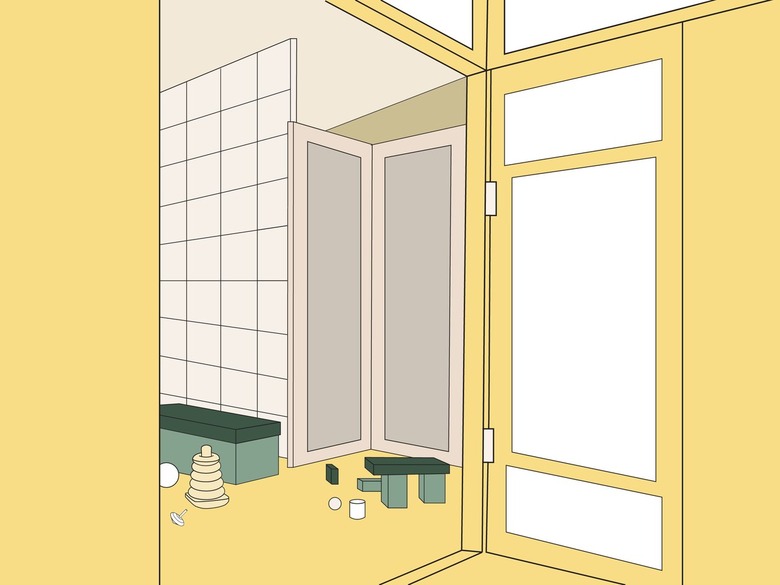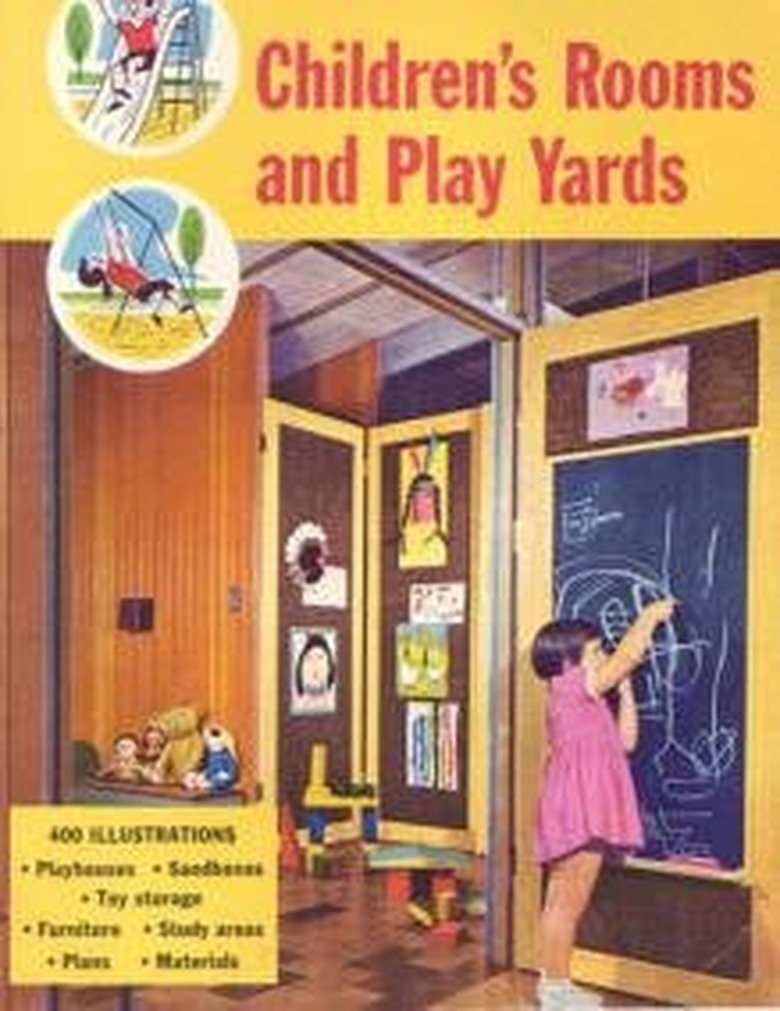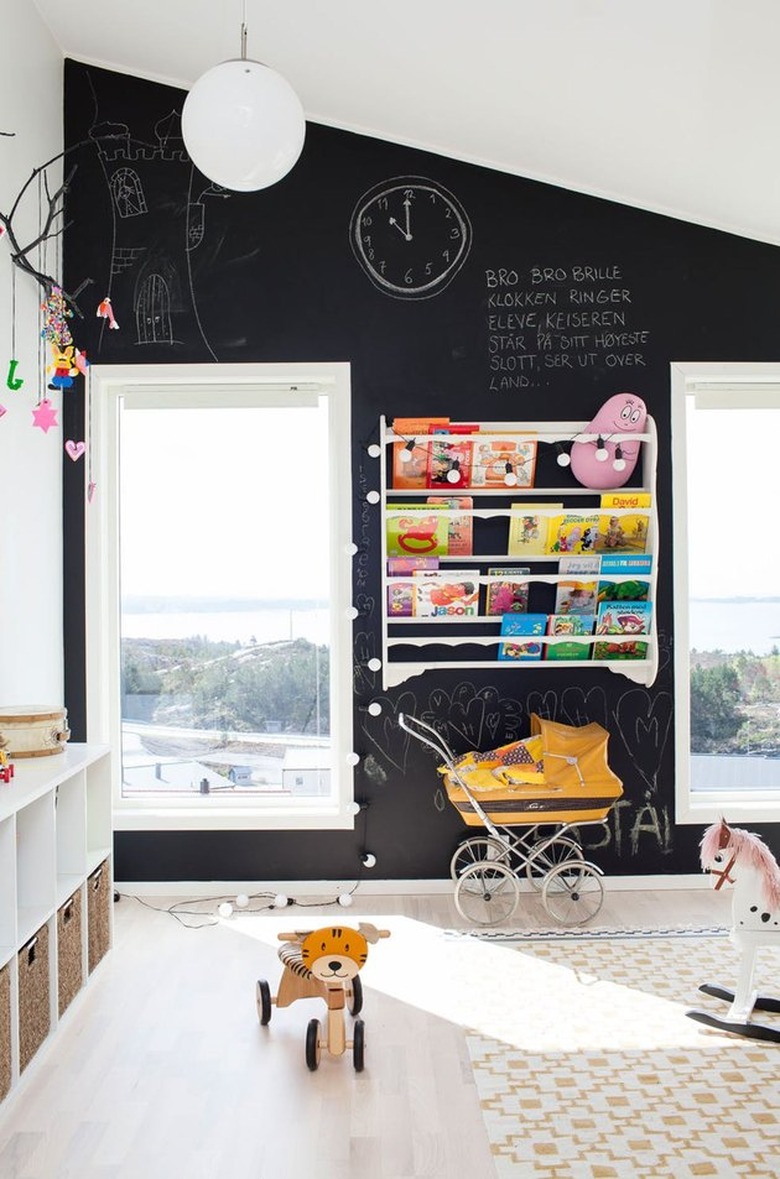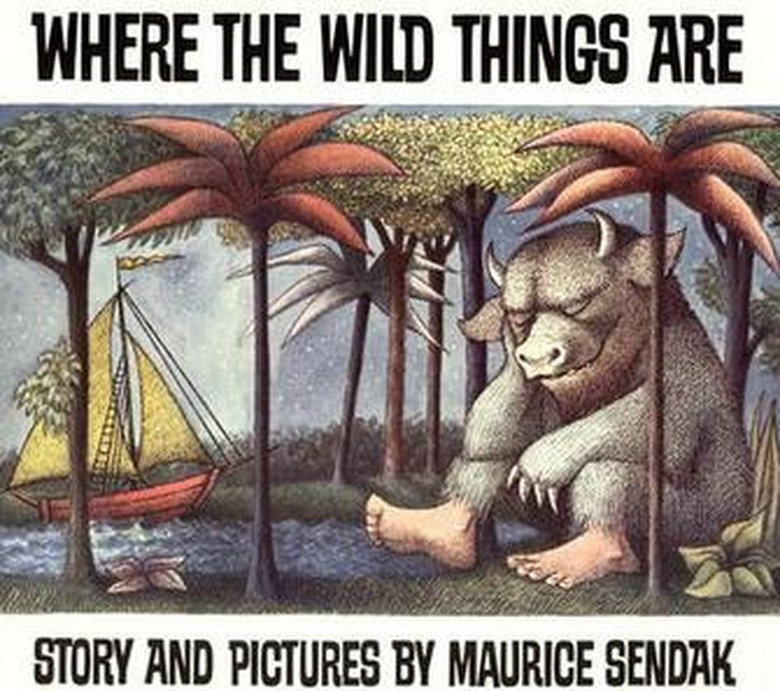Why Is It Called A "Rumpus Room"?
We may receive a commission on purchases made from links.
The two most uttered words of the House Hunters universe have got to be "open plan." On nearly every episode of the HGTV mainstay, it seems young families are desperate to live in homes that have as few walls as possible. An open plan, they insist, will allow parents and kids to work, cook, and play in the same space. "I can keep an eye on the kids while I'm cooking," they repeat in upstate New York, Charleston, Boise, and Phoenix.
It's hard to remember sometimes that "open plan" hasn't always been the default for a family home, but it's true — once upon a time it was common for kids and adults to be separated not just by activity but by actual rooms.
Where did the the phrase "rumpus room" originate?
Where did the the phrase "rumpus room" originate?
The word "rumpus" itself dates to the mid-18th century, and while the etymological trail runs cold before that, its original meaning was one of exuberance and noise — not quite a riot, but perhaps a more contained version of one (we do know that "rumpus" is the parent of another boisterous "r" word — "ruckus," which emerged in the 1890s as a mashup of "rumpus" and "ruction").
It's clear that "rumpus" is a wild word, which sets up an important question: why on earth would you want a space devoted to one inside your house?
The first use of "rumpus room" dates to the late 1930s, which also happens to be a pivotal moment in the way kids play. For centuries, families worried little about supervising play; they sent kids outside to organize their own games, or, in many cases, sent kids directly to work on the farm or inside, where they could learn the domestic routines parents assumed they'd eventually adopt in their own lives.
As an increasing number of people left both rural areas and cities to live in the suburban houses we come to associate with midcentury America, though, families were left to rethink childhood play: Should kids be allowed to roam free outside? If they moved play inside, were they allowed to be loud? What if they broke stuff?
When was the playroom invented?
When was the playroom invented?
Enter the playroom.
In The Design of Childhood: How the Material World Shapes Independent Kids, architecture critic Alexandra Lange says that in suburban homes, "the playroom, well stocked with toys, was supposed to replace the pleasures of the urban, social street."
In other words, new ideas about keeping kids safe required bringing the world of play indoors. Shows like Romper Room, hugely popular in the 1950s, reinforced the notion that wild fun could be contained within a relatively small part of the house, leaving parents free to do chores and other tasks associated with adulthood.
Rumpus room, playroom, and recreation room are all used to describe this liminal space where kids (and later, teens) could do (virtually) whatever they wanted while still within earshot of an adult, though in Atari Age: The Emergence of Video Games in America, University of Wisconsin-Milwaukee professor Michael Z. Newman points out that "rumpus room" "suggests the unbridled, 'anything goes' play of the young rather than the more all-aged entertaining suggested by 'recreation room'" and notes that a rumpus room might specifically be for noisy games and messy activities.
If rumpus room means anything to kids now, it likely comes from Maurice Sendak's 1963 Where the Wild Things Are, a children's book beloved by multiple generations. Its hero, Max, is sent to bed without any supper for the crime of being too wild inside the house and finds himself transported to a land of equally boisterous creatures. Max becomes their king, and his first act as ruler is to utter a now-famous command:
"Let the wild rumpus start!"



